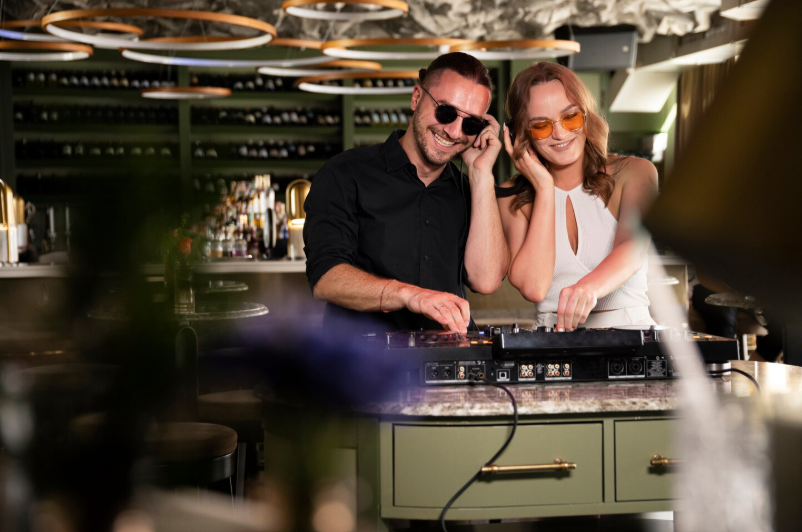Europe’s Best Luxury Music Festivals with VIP Access
Introduction
The modern festival landscape has diversified beyond mass crowds and muddy fields. Across Europe, a cohort of festivals now offers elevated experiences for travellers who expect world-class programming combined with five-star hospitality: private lounges, gourmet catering, concierge services, premium viewing platforms and curated cultural extras. For hospitality professionals, travel designers and discerning guests, understanding what luxury festival access delivers — and how to position it — is an important part of contemporary lifestyle travel.
What defines a luxury festival experience?
A luxury festival experience is defined less by price and more by service, curation and exclusivity. Key elements include: dedicated VIP entrances and viewing areas, private hospitality suites or lounges, premium food and beverage offerings (often locally sourced or chef-driven), backstage or artist-adjacent experiences, personalised concierge services and on-site comfort (private restrooms, shaded seating and quiet lounges). These features transform attendance from passive spectating into a highly curated, seamless lifestyle moment.
Top European festivals that deliver premium VIP access
Tomorrowland (Boom, Belgium)
Genre: Electronic — Why it’s luxury: immersive production, VIP villas, and exclusive stages.
Tomorrowland is a global benchmark for large-scale immersive production. Beyond the main stages, VIP packages include exclusive viewing platforms, private lounges, premium catering and curated accommodation options — from boutique hotels to on-site DreamVille villas. For clients who value spectacle and flawless logistics, Tomorrowland’s premium offerings transform the festival into a comfortable and unforgettable escape.
Montreux Jazz Festival (Montreux, Switzerland)
Genre: Jazz / eclectic — Why it’s luxury: intimate venues, waterfront hospitality and artist curation.
Montreux blends musical pedigree with refined hospitality. VIP ticket holders enjoy access to reserved seating in intimate venues, backstage events, and invitations to exclusive concerts. The festival’s lakeside setting and partnerships with luxury hotels and Michelin-level dining make it an excellent fit for travellers seeking culture with calm and comfort.
Salzburg Festival (Salzburg, Austria)
Genre: Classical / opera — Why it’s luxury: world-class programming, formal hospitality and private receptions.
Salzburg is the exemplar of classical festival luxury. VIP packages frequently include private rehearsals, artist receptions, premium seating and hospitality that mirrors the seriousness of the music on offer. For clients who prioritize prestige and cultural depth, Salzburg delivers timeless elegance.
Primavera Sound (Barcelona, Spain)
Genre: Indie / alternative — Why it’s luxury: curated VIP areas, hotel partnerships and concierge services.
Primavera has broadened its premium services to include comfortable VIP terraces, backstage-style viewing platforms and coordinated hotel packages. The Barcelona setting adds excellent dining and design-led hospitality options, appealing to clients who want stellar lineups without compromising on comfort.
Glyndebourne Festival (East Sussex, UK)
Genre: Opera — Why it’s luxury: picnic formalities, private boxes, and longstanding traditions.
Glyndebourne’s day-long operatic format is a study in refined festival-going. Private boxes, beautifully appointed dining options and an emphasis on tradition and ceremony make it a natural fit for guests who expect a composed and distinctly English interpretation of ‘festival luxury.’
Ibiza Season and Curated Yacht Events (Balearics, Spain)
Genre: Electronic / house — Why it’s luxury: VIP tables, private yacht charters and sunset hospitality.
Ibiza’s premium events — from marquee club residencies to boutique yacht parties — give VIP guests unparalleled access to artist experiences, private terraces and bespoke food and beverage. For guests combining festival energy with luxury transport and accommodation, Ibiza remains unmatched.
How to evaluate VIP packages for clients
- Access vs. extras: Check whether the package offers only better sightlines or also includes hospitality, artist encounters and concierge services.
- Logistics and exclusivity: Prioritise packages that minimise queue times and include private check-in, dedicated restrooms and secure storage.
- Food, drink and comfort: Premium catering, reserved seating, shade and climate-control features often determine overall satisfaction.
- Customization and add-ons: The best luxury offerings allow upgrades — private transfers, bespoke dining experiences and curated backstage opportunities.
Sustainability, reputation and safety
Luxury travellers increasingly expect ethical and sustainable practices. When recommending VIP experiences, assess a festival’s environmental policies, waste management, and local-community engagement. Reputation and safety protocols — especially crowd management and medical services — are essential when booking for high-profile or older clients.
Practical tips for travel designers and hosts
Build packages that bundle VIP festival access with hotel suites, private transfers and early check-in. Offer pre-event briefings, local dining suggestions and options for quiet downtime — festivals can be intense, and a measured itinerary keeps the experience restorative as well as exciting. Finally, use high-quality imagery and testimonial quotes from past VIP guests when marketing these packages.
Conclusion
Luxury music festivals in Europe are about more than access — they are carefully crafted moments where music, place and hospitality converge. Thoughtful VIP programming and hospitality enhance enjoyment and provide currency for storytelling: memories that guests will recount long after the final encore.
Learning New Languages as an Expat: Strategies for Quick Success
As a closing note, many festival-goers and luxury travellers are active expats. Rapid language acquisition improves both social and service interactions. Effective strategies include daily micro-practice (15–30 minutes of focused drills), prioritising travel- and hospitality-related phrases, joining language exchanges for conversational confidence, immersing through local media and menus, and using short, goal-oriented sessions with tutors for pronunciation and cultural nuance. Real-world practice — ordering, asking about ingredients, or greeting staff — accelerates fluency and deepens cultural connection.
Stay Connected for More Travel and Lifestyle Inspiration. For more insights into travel, culture, and lifestyle tips, follow me on Instagram @salvadorordorica. If you’re seeking professional translation and localization services to enhance your global ventures, visit The Spanish Group — your trusted partner in bridging cultures worldwide.



